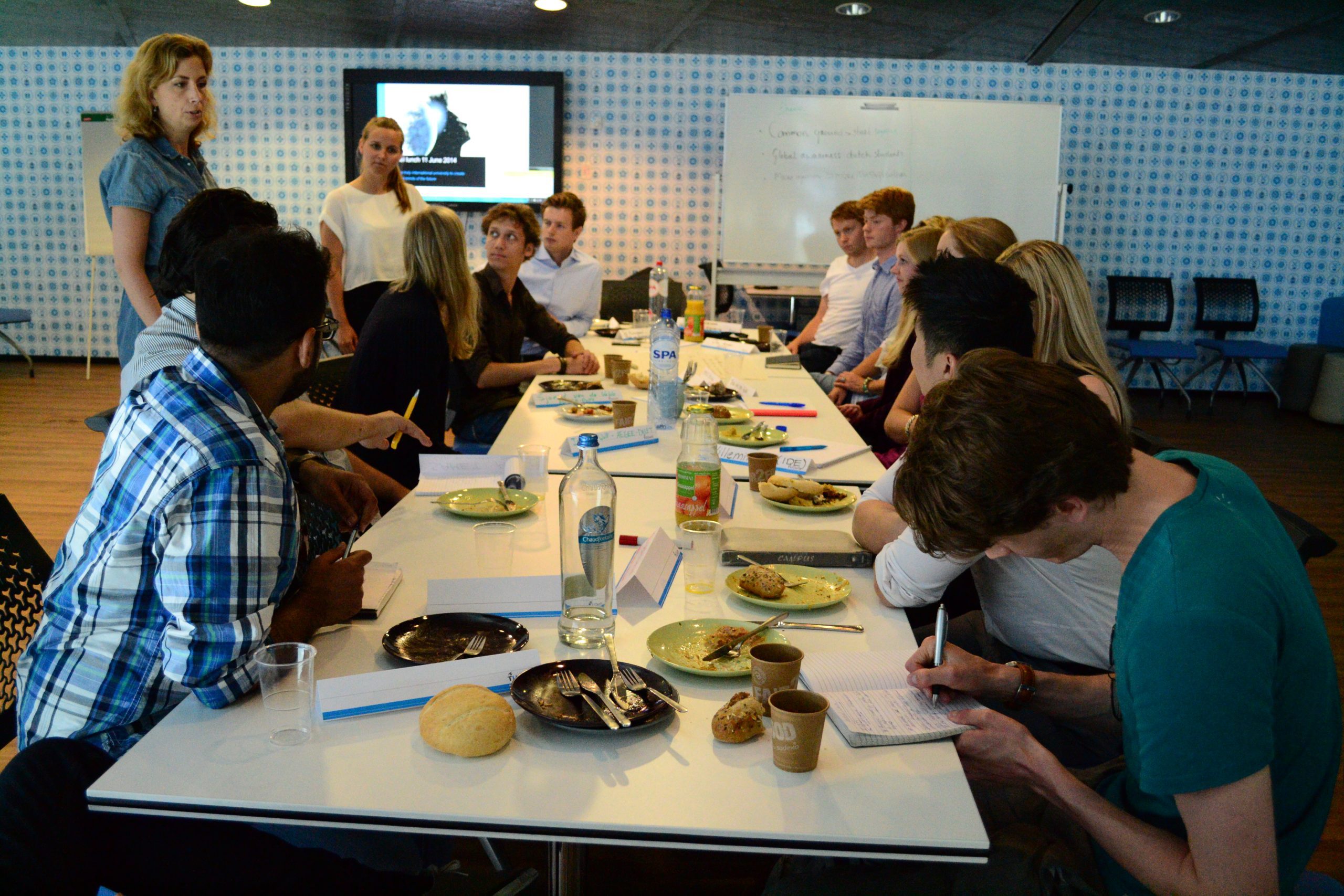Representatives of international student associations, faculty and staff met to discuss the challenges of integration and how to promote a global mindset at TU Delft during the first Global Minds Lunch on June 11, 2014.
Organized in part by the Student Council, the Communications Department and the Office of the Vice President for Education and Operations, the initiative sought to bring together members of the university community to share their ideas in the promotion of cultural and national diversity. For the first time, student representatives and staff were able to meet face-to-face to discuss relevant issues concerning integration and to collaborate on finding proactive solutions.
“We see that internationalization is becoming more important in the university organization,” says Myrthe Gillis, Vice President of the ORAS party and Board Member of the Student Council. “What we miss are the community talks with internationals and the global mind community. We think that there are a lot of good initiatives from student associations and they have really good intentions, but they don’t know each other and they especially don’t know how to get things done in the university.”
Due to the increasing number of international students and researchers at TU Delft, internationalization has become a top priority of the university’s Executive Board. “Being an international university is part of being an excellent university,” says Anke Mulder, Vice President for Education and Operations. “In the future, students will be working with people from different countries.They will be able to communicate with everybody.” As a result, the Executive Board has taken a number of important steps to facilitate internationalization.
“98% of our support staff is Dutch,” Mulder says. “We’re trying to get more international staff. The same is true for our management.” Moreover, the Executive Board now requires all policy documents to be summarized in English. Major university events such as the opening of the academic year are no longer held in Dutch. Still, Mulder is convinced that students play a more crucial role in developing a global mindset.
The lack of social interaction between Dutch and international students has been identified as one of the main hurdles of integration. Differences in language, culture and even age have discouraged Dutch students in particular from engaging with people from other countries. Despite efforts to organize international activities and events by the International Office and various student associations, it appears that the majority of Dutch students are uninterested in participating. “We are still searching for ways to find a common ground where we can meet,” says Marlies Poelman, Communications Coordinator for the International Office. “I think international students who arrive here are more aware of their culture and what they can gain here.” Dutch students, on the other hand, have yet to develop a global mindset.
The being said, representatives of Dutch student associations were notably absent during the Global Minds Lunch. Considering that internationalization can only be achieved through the concerted effort of the university community, the lack of input from these organizations leaves a prominent gap in the discussions. “We also think that their position is interesting,” Gillis claims, “because they really have a Dutch point-of-view and we want to know what they think about it. It’s another side of the story that we want to know about.”
With more than 1,200 international students due to arrive next year, the university is keen on making a good first impression. “It’s not about internationals being Dutch or the other way around, it’s about understanding each other.” Mulder says. “It’s so much easier to live in a country that is open to others.”



Comments are closed.